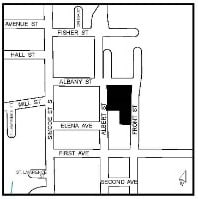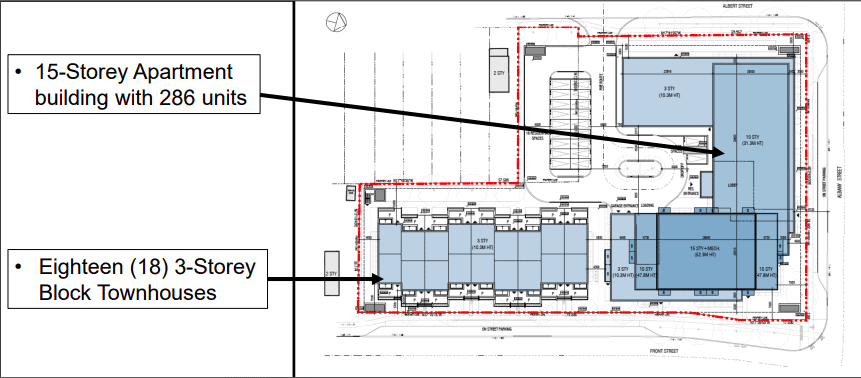Future GO Station-related housing project in Oshawa approved at committee
Published September 15, 2022 at 8:59 am

The long awaited GO Station coming to the old Knob Hill Farms site in Oshawa is still a few years away but the real estate dominos are finally starting to fall, with one of the first projects – a 286-unit mixed apartment and townhouse proposal – appearing before the city’s Development Services Committee Monday.
Urban Solutions is proposing a 15-storey apartment building (fading to ten storeys) and 18 three-storey townhouses at the corner of Albany Street and Albert Street, immediately west of the future GO Station.
The bulk of the property (63 Albany) is vacant land but two semi-detached homes (467 & 469 Albert Street) are also part of the proposal.

Matt Johnston, a planner with Hamilton-based Urban Solutions, was at committee Monday asking for an increased density (to 434 units per hectare) for the project. Johnston, who was born in Oshawa after his father got a job here that began with a long commute – “GO Transit brought my family here and it’s GO Transit that is bringing me back” – acknowledged two previous attempts to develop the property by previous landowners in 2010 and 2019 and told councillor John Gray (who served as Mayor in 2010) that this proposal is very much real.
“This is a real application and this will come to fruition,” he said, adding that the money behind Urban Solutions has a track record of delivering on their promises.
Johnston said the density of the project is more that was “originally envisioned” for the site but “it’s a density that is more in line with the infrastructure that’s coming with the future GO Station,” calling the proposal “good land use planning.”
The zoning amendment was carried by committee and will be back at committee for further review before landing on the council floor, likely after the October 24 municipal election.
The future GO Station – valued at $1.1 billion – along with stations at Thornton Corners in Oshawa, Courtice and Bowmanville, are expected to be operational by 2024.

insauga's Editorial Standards and Policies advertising






